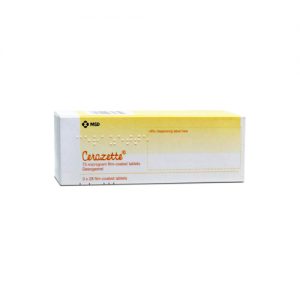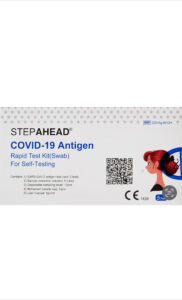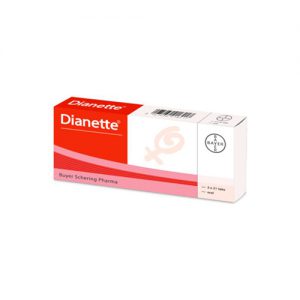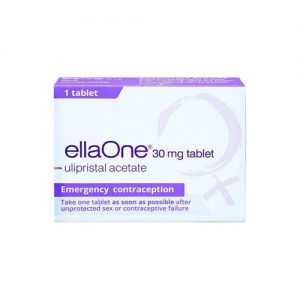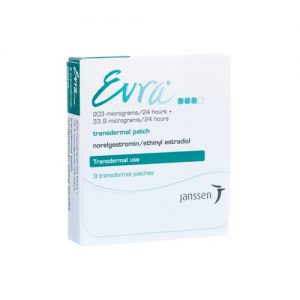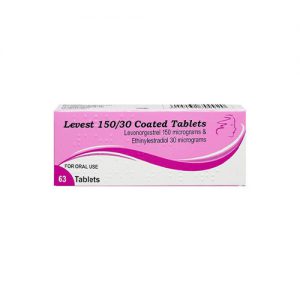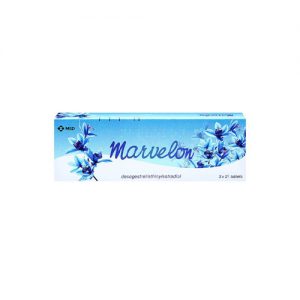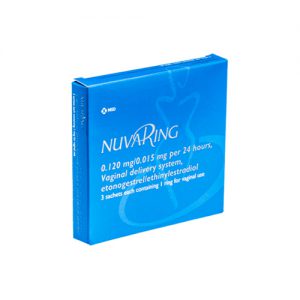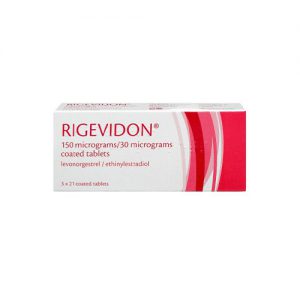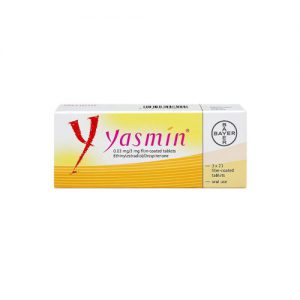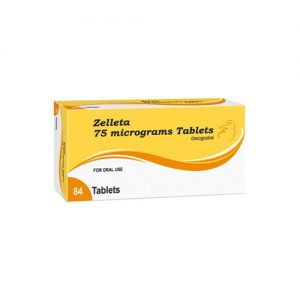Showing 16 products
Pagination
Contraceptive Pill / Birth Control Pill
The contraceptive pill is a popular form of birth control that is available through sexual health clinics and healthcare professionals. There are different types of pills, including the combined contraceptive pill and the oral contraceptive pill, which are both effective at preventing pregnancy.
In addition to the pill, there are many other types of contraception available, such as the copper coil and emergency contraceptive pills. Some people may also use additional contraception methods for added protection. It's important to talk to a healthcare professional to determine the best form of birth control for your individual needs and preferences.
Regular visits to a contraception clinic can also provide information on different types of contraceptives, as well as testing for cervical cancer and other related health issues. While the contraceptive pill is generally safe to use, some people may experience side effects like breast tenderness.
In the event of unprotected sex or contraceptive failure, emergency contraceptive pills can be a helpful option. These pills can be obtained through a healthcare professional or through standard delivery.
What is the combined pill?
Often simply called ‘the pill’, the combined pill contains artificial versions of the hormones oestrogen and progesterone.
It works by preventing ovulation, and it also thickens the mucus in the neck of the womb, making it harder for sperm to reach an egg if one is released.
It thickens the lining of the womb too, reducing the chance of a fertilised egg being implanted in the womb. When taken correctly, this type of contraceptive is 99 per cent effective at preventing pregnancy.
Typically, these pills are taken once a day every day for 21 days, before a seven-day break. During the break, you will have a bleed similar to a period.
What does the combined pill contain?
The combined pill contains both progestogen and oestrogen. These hormones prevent ovulation and unwanted pregnancy.
What is the mini pill?
Progestogen-only pills, also sometimes called ‘mini pills’, only contain progestogen. They work by thickening the mucus in the cervix and, like combined pills, they are 99 per cent effective when used correctly.
This option is often recommended for those who have high blood pressure, are at risk of blood clots or are overweight. You take one tablet each day, with no pill-free break.
What are the alternatives to the pill?
When you wish to order online pharmacy contraception but want an alternative to the pill, there are other options.
For example, we offer combined hormonal contraceptive patches that can be applied to the upper arm or thigh, and we provide vaginal rings. Both of these methods slowly release hormones into the bloodstream to prevent pregnancy.
One of the advantages of these options is that they don’t require you to remember to take a daily pill.
How soon do I have to use emergency contraception after unprotected sex?
There are two types of emergency contraception. Levonelle contains the synthetic hormone levonorgestrel and must be taken within three days (72 hours) of unprotected sex.
EllaOne contains the medication ulipristal acetate and has to be used within five days (120 hours) of unprotected sex. The earlier both medications are taken, the more effective they will be.
To order contraception online, simply choose your preferred option and complete a consultation. You can also contact our experts for further information on this topic or another area of women’s health.
How does the combined pill work?
The combined pill works in a number of ways in the body:
1. It stops the ovaries from releasing eggs, therefore stopping ovulation.
2. It also thickens the cervical mucus to prevent sperm from reaching the womb. It makes the womb walls thinner, so if an egg were to be released, it would be unable to attach itself to the womb.
It is important to note that the contraceptive pill will NOT protect you from sexually transmitted infections, and a barrier method of contraception such as a condom is recommended.
How to take the combined pill
Take it at the same time daily to ensure you're protected.
Most combined pills are taken for 21 days, followed by a 7-day break (or 7 days of inactive pills, which contain no hormones).
During the 7-day break you're likely to have a period, but are still protected as long as you have taken the dose correctly.
After the 7-day break, you can continue with the next pack.
Follow the same cycle for as long as you require contraception
Side effects of the combined pill
As with all medications the combined pill also has a risk of potential side effects. Some common side effects such as unexpected bleeding or spotting are often temporary and seen within the first few months of starting treatment whilst the body adjusts to the medication.
Occasionally some side effects can persist, or start to develop later on in the treatment and these should be considered when choosing the right form of contraception.
Below are some of the common and uncommon side effects as mentioned in the British National Formulary (BNF):
Common side effects
- Feeling sick
- Stomach ache
- Putting on weight
- Headaches
- Depressive moods or mood swings
- Sore or painful breasts
Less common side effects
- Being sick and stomach upsets
- Fluid retention
- Migraine
- Loss of interest in sex
- Breast enlargement
- Skin rash, which may be itchy
For a full list of side-effects, refer to individual Patient Information Leaflets (PIL).
Precautions with the combined pill
The effectiveness of “combined oral contraceptives”, “progestogen-only” oral contraceptives, contraceptive patches , vaginal rings, and emergency hormonal contraception can be considerably reduced by interaction with drugs that induce hepatic (liver) enzyme activity.
Some common examples include:
- Carbamazepine
- Phenytoin
- Phenobarbitone
- St John’s Wort
- Topiramate
- Rifampicin
- Griseofulvin
For short-term use of enzyme inducing drugs alongside combined oral contraceptives, it is suggested that appropriate barrier methods such as condoms are used for the duration of the treatment, and continued for 4-weeks after stopping.
For patients on long-term courses of potent enzyme inducing drugs such as Rifampicin and Rifabutin, it is recommended that an alternative method of contraception such as an IUD (intrauterine device) or coil is used instead of the combined oral contraceptive and continued for 4-weeks after stopping.
It is recommended that no additional contraceptive precautions are required when combined oral contraceptives, contraceptive patches or vaginal rings are used with antibacterials that do not induce liver enzymes, unless diarrhoea or vomiting occur.
Choose your product and start your FREE medical consultation now
Low-dose Combined Pill
Low-dose pills, like Gedarel, contain both progestogen and oestrogen, but with less oestrogen than regular combined pills. This can reduce some side effects.
How you take the low-dose Combined Pill
You take one pill daily at the same time each day. Typically, you take them for 21 days, followed by a 4 or 7-day break, during which you may experience a withdrawal bleed. If you have heavy or painful bleeding, headaches, or mood swings during pill-free days, you can skip the break.
There are other ways to take the pill:
- 9 weeks followed by a 4 or 7-day break
- Every day continuously
- Everyday for at least 21 days followed by a 4 or 7-day break.
You can learn more about taking the combined pill. With a low-dose pill, you may experience irregular bleeding, and your blood pressure may increase, so it's important to have it checked before taking the pill and at least once a year after that.
The mini pill (progestogen-only pill or POP)
Mini pills, such as Cerazette, Cerelle (Desogestrel) only contain the progestogen hormone. They may be a suitable option if you are unable to take the combined pill, are overweight, or have had blood clots or high blood pressure.
It is crucial to take one pill every day at the same time. Unlike combined pills, there is no break from taking the mini pill.
The most probable side effect is irregular bleeding, which should subside within three months of starting the pill. There is no need for BMI or blood pressure checks when taking the mini pill.
Contraceptive patch and vaginal ring
The contraceptive patch and vaginal ring both contain progestogen and oestrogen hormones, like the combined pill. However, they are delivered into the body differently. The contraceptive patch (Evra) is worn on clean, dry, and non-hairy skin, it is changed weekly. The ring is inserted into the vagina by the user, changed every 3 weeks on the same day and time. Both can be used for 21 days followed by a 4 or 7-day break or continuously without a break. Used properly, they are 99% effective and not affected by stomach upsets. Regular checks are recommended to ensure they remain in place. Possible side effects include headaches, skin irritation, nausea, tender breasts, and a slightly higher risk of blood clots.
How do I choose the right contraceptive pill for me?
There is no one "best" contraceptive pill - each has its own pros and cons. Your age, general health, and lifestyle will determine which pill is right for you. It's important to educate yourself on the various types of contraceptive pills and speak with a doctor to find the best fit. Remember, you can switch pills if you experience discomfort or want different benefits. Our contraceptive consultation service offers a safe and convenient option to find the best pill for you. Our doctors guide you through the process and deliver your pill straight to your door. Whether you're starting the pill for the first time or looking for a different contraceptive, our consultation service can help. We'll explain the benefits of each type of pill and review your health and contraceptive needs to provide the most suitable option for you.
What brands of the contraceptive pill are there?
Brand of Pill Type of Pill Hormones Cerazette
Katya Combined Pill 75 micrograms gestodene, 30 micrograms ethinylestradiol Levest
Norinyl-1 Combined Pill 1 milligram norethisterone, 50 micrograms mestranol Ovranette
Sunya Combined Pill 75 micrograms gestodene, 20 micrograms ethinylestradiol Synphase
TriRegol Combined Pill 50-125 micrograms levonorgestrel, 30-40 micrograms ethinylestradiol Yasmin
How long does it take for the pill to start working?
The contraceptive pill is effective after 7 days of use, regardless of when you start taking it during your period. Starting on days 1 to 5 of your period should provide immediate protection with most combined and mini pills. If you start outside of this timeframe, additional contraception, such as condoms, is recommended for the first 7 days of the combined pill or the first 2 days of the mini pill.
Where can I get the contraceptive pill?
The contraceptive pill can be obtained for free from an NHS GP or online from providers such as Access Doctor. Access Doctor offers a variety of UK pill brands, eliminating the need for a GP visit.
Bleeding between periods
Bleeding between periods can be a side effect of some contraceptive pills, but it's usually temporary and not harmful. If it persists or is heavy, see your doctor. The pill is over 99% effective when taken correctly, so missing a period does not necessarily mean you're pregnant. Some pills can delay or stop periods altogether. Check with your doctor to confirm pregnancy and discuss options.
Can I switch to a different pill?
There are many different types of contraceptive pills available. If you are considering switching to a different pill, it is important to talk to a doctor first to ensure a safe transition. While some women may experience weight gain while taking the pill, there is no clinical evidence that the pill causes weight gain. However, oestrogen and progesterone can lead to water retention and increased appetite, respectively, which may contribute to weight gain. Taking the pill does not have a long-term impact on fertility, and fertility levels should return to normal shortly after stopping the pill. Some women may experience a delay in their periods returning to normal, but it is still possible to get pregnant immediately after stopping the pill. For more information, consult with a doctor.
How do birth control pills work?
Contraceptive pills are equally effective in preventing pregnancy, with a success rate of more than 99%. However, the effectiveness of the pill can be reduced by missing a pill, vomiting, or having diarrhoea shortly after taking it. Taking these factors into account, the pill's real-world effectiveness rate is around 91%.
What should I do if I miss a pill?
If you miss a pill, take it as soon as possible and take your next pill as scheduled, even if it means taking two pills together. Depending on the type of pill and where you are in your cycle, missing a pill may leave you unprotected against pregnancy and require additional contraception. Consult our doctors' guide for more information on what to do if you miss a pill.




We’re here to help.
Our friendly team is available to help Monday to Friday 9:00am - 5:00pm.
If you need urgent assistance, do not use this service. Call 111, or in an emergency call 999.

